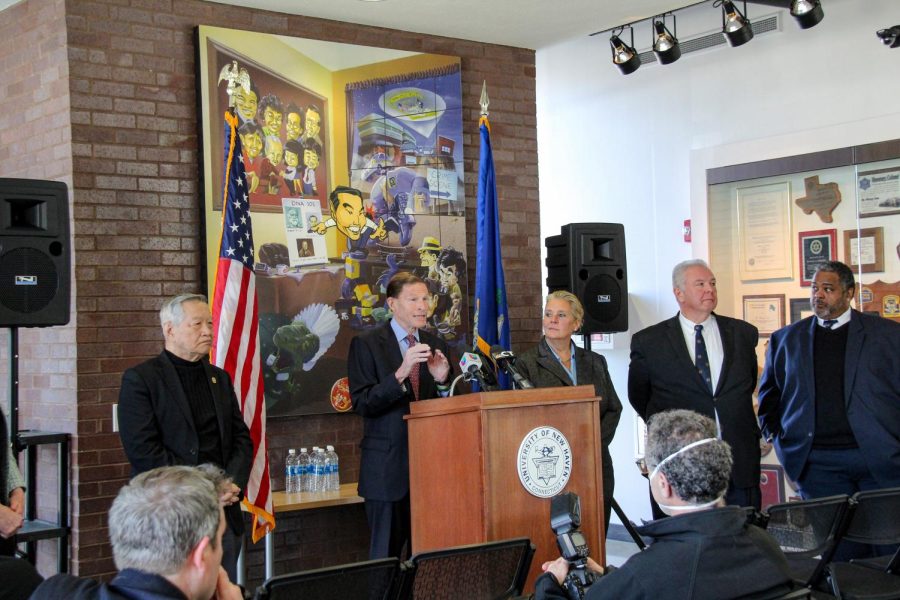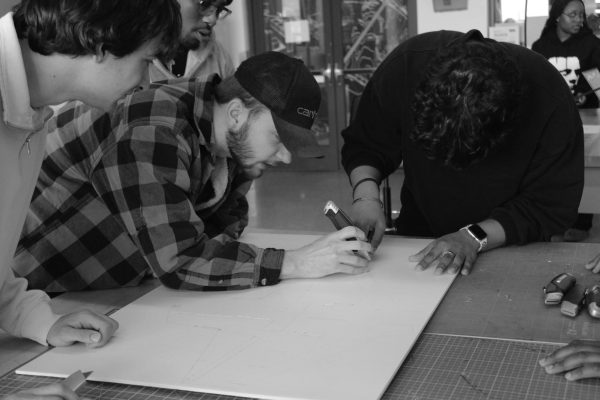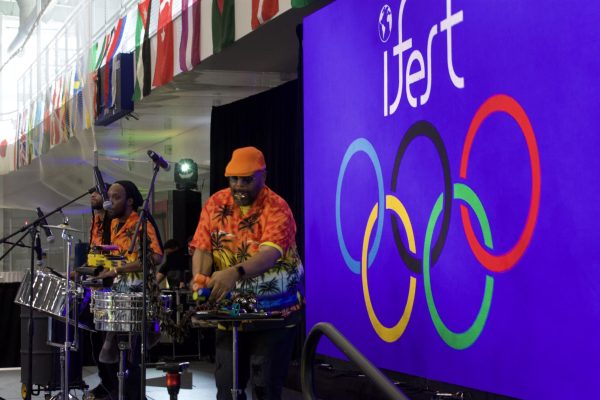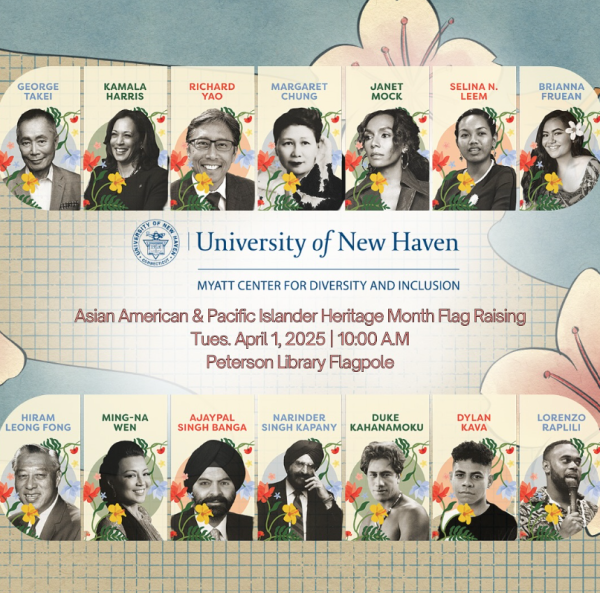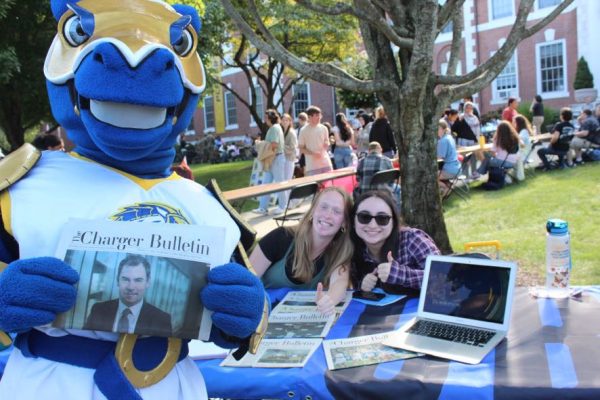University granted $1 million toward further combating gun violence
Photo courtesy of Charger Bulletin/Mia Adduci.
Sen. Blumenthal addresses the crowd alongside Henry C. Lee, West Haven, March 21, 2023.
“It takes a whole community to combat gun violence” according to Sen. Richard Blumenthal (D-Conn.). West Haven, Conn. has now been given a platform to become such a community, as a product of a new government-issued fund towards combating gun violence through community intervention. The aim is to provide more resources and use researched information to drive progress in this area.
Yesterday, Blumenthal stood in the lobby of Ghering Hall to announce a $1 million grant to the University of New Haven, sparking greater progress toward resolving the gun violence epidemic through the integration of university programs and local community outlets.
“This is another situation where the University of New Haven leaves campus, rolls up their sleeves, and moves into the community to make a difference,” said Lorenzo Boyd, professor of criminal justice and community policing.
The Henry C. Lee College–– whose namesake and founder was present at the event–– and the College of Health Sciences will be integrated in order to further involvement through this community involvement intervention program.
“Underlying what happens in a courtroom or the work that police do is a lot of painstake,” said Blumenthal, speaking on the program’s aim to place emphasis on the importance of the analysis of facts and properly approaching justice work with proper weight.
Blumenthal held his place at the podium and voiced enthusiasm for branching out means of approaching the issue, saying “Even as we work for better legislation, we can take these kinds of steps to enlist the community’s prudent people in this fight against gun violence.”
Dean of the School of Health Sciences Betsy Francis-Connolly showed excitement for the new motion and commented on gun violence being a public health issue.
“The unique part of this is to marry public health with public safety,” said Francis-Connolly, continuing to speak on the prospective involvement in the community through this program.
The multidisciplinary nature of this initiative was reinforced heavily throughout the conference, especially by Boyd, in order to take a holistic approach to the subject matter at hand.
Boyd discussed not only the extensive data analysis and sharing of the project, but the high level of training in trauma-informed policing which will be aimed to bridge their connection to the community in what he called a “sustained effort” toward the cause.
He also delved into the connections between prior efforts of de-escalation training and the new trauma-informed methods, and how paramount the overlap is seen to be.
Boyd also said that “the way you view the problem dictates the way you view the solution,” in regards to the chain of approach when addressing mass issues in the population.
It was reiterated that a range of opportunities will be present for students in this mission.
Health sciences and criminal justice and forensics faculty were both involved in the development of this initiative. Community involvement is set to include partnerships with the New Haven Police Department and at least three major community-based health clinics will be involved. The Center for Analytics, founded by students in 2008, will also be granted four financially compensated work-study positions. This includes research opportunities, independent studies and internships, as well as partnerships with the aforementioned local affiliations.
Makayla Mansur, sophomore criminal justice student, spoke thoroughly near the end of the conference.
She said that the funding meant a lot to her personally as someone who grew up in Connecticut around the time of Sandy Hook.
Mansur said, “I don’t think people realize that when you’re a child and something terrible happens, they might not understand that there’s still some underlying fear, and confusion and frustration.” She proceeded to thank Blumenthal for the opportunity to synthesize resources in order to create more opportunities to approach the issue.
“If we can put our resources together and curb this violence,” Mansur said, “I think that if a state is going to do it, then [it is Connecticut].”
Blumenthal in response cued into the impact that Sandy Hook had on those living in the state, and then shone light on the national notion that children are placed in situations to “endure the trauma” of shooting events through drill tactics.
“Gun violence isn’t limited to one community or one city,” he said, but following this new fund, the West Haven and New Haven community is set up to be a catalyst for larger change.

Mia Adduci is a senior studying communication concentrating in multi-platform journalism and media who began writing for the paper her first semester on...



